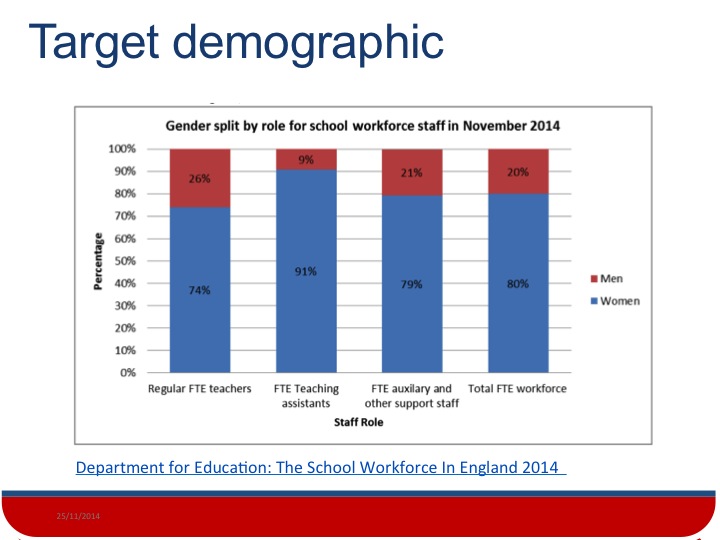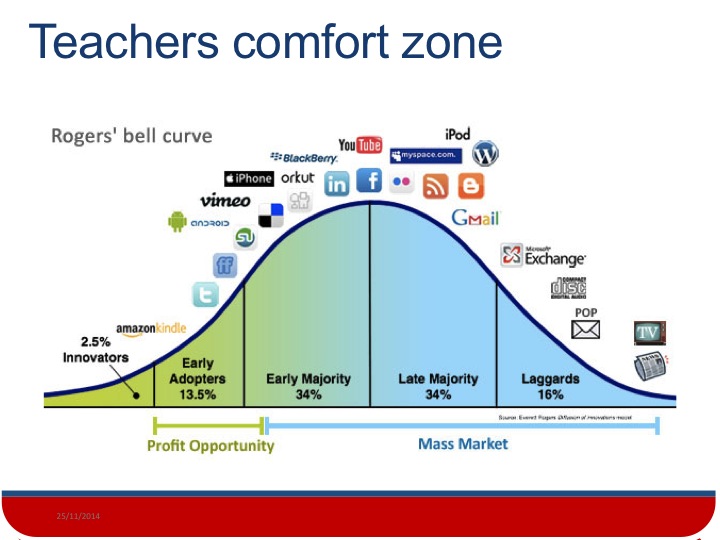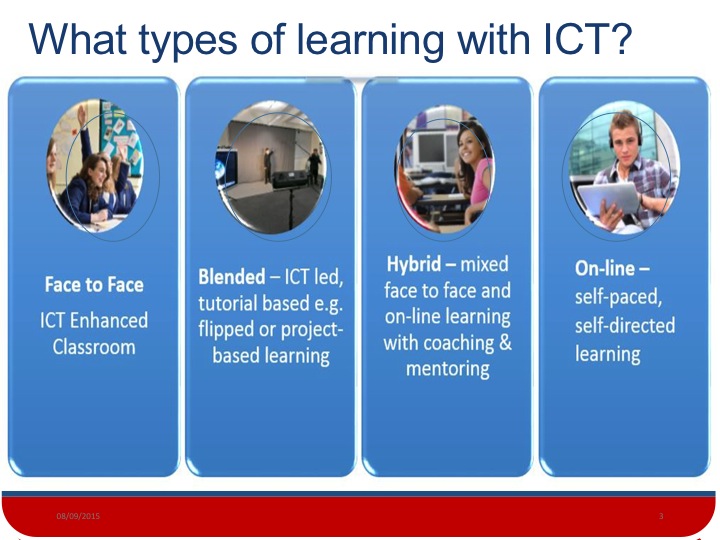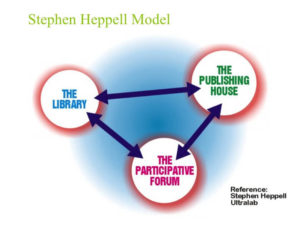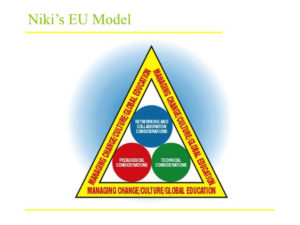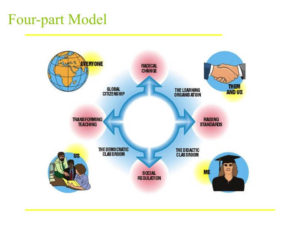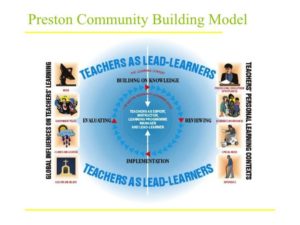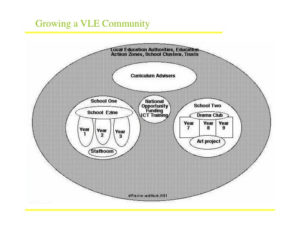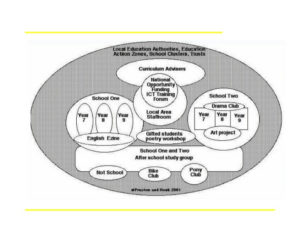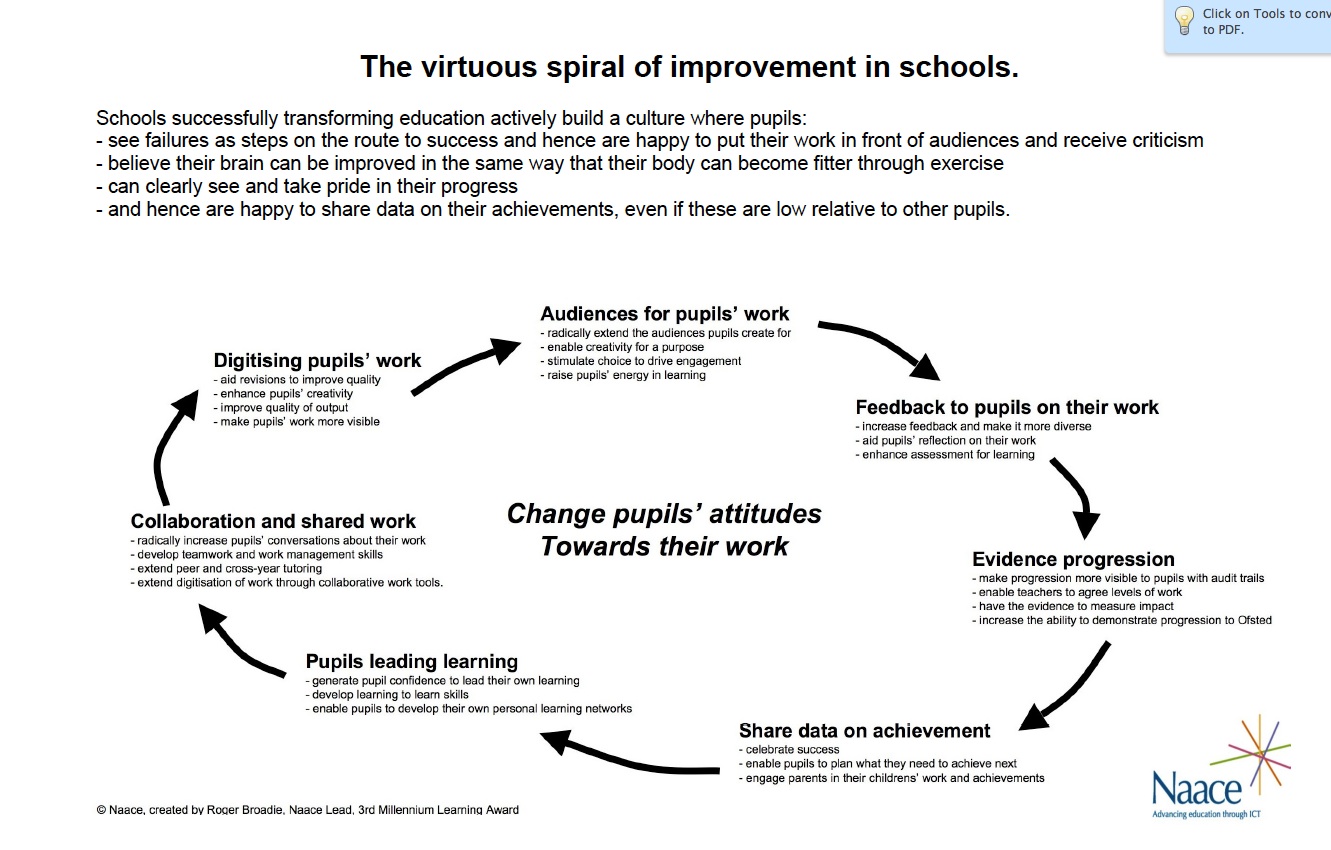Since the 1980s when desktop publishing became widely available academics have developed pictorial models to explain their thinking visually. Below are some models, mostly developed by MirandaNet members, that we use in our action research iCatalyst professional development programme that can be undertaken at certificate, diploma or Masters level.
Here I have modelled a conventional course at the top as opposed to courses below that contribute to a community like a school sharing knowledge:

This is how members of a community of practice support each other in our view:
Action research as a learning method in CPD encourages the community to revisit and revise their solutions as they learn more. Particularly important in using digital technologies to encourage innovation in teaching and learning.
Investigate more about our CPD programmes here:
- The Sprint and iCatalyst programmes and the action research approach are explained here.
- Examples of associate-funded Sprint and ICatalyst publications are here.
- Examples of ICatalyst projects are here.
- MirandaNet publications relating to professional development can be found here.
- Some examples of the pedagogical models that the teachers use to measure their progress in systemic change at Master’s level can be found here
Get in touch for more information email christina@mirandanet.ac.uk
More pedagogical models
These models can be very helpful for teachers as learners and leaders to visualise collaboratively the barriers to innovation as well as the stages of progress as skills and knowledge improve throughout the school.
Here are some models about teachers samples in schools
Here are some models that we have found valuable to stimulate thinking in iCatalyst programmes:
Download the RAT model here.RAT model
Here is the TPACK model for technology adoption:
TPACK has its own website full of helpful resources here.
Here are some models that relate to the creation of e-communities of practice and about different kinds of learning when technology is involved:
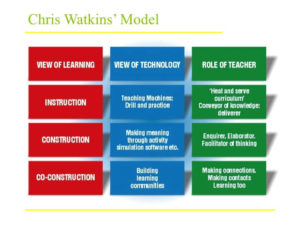 MirandaNet Braided Learning model
MirandaNet Braided Learning model
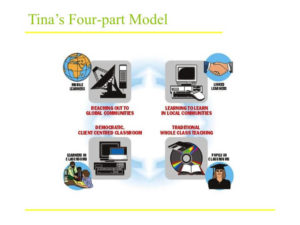 Braided Learning Community building
Braided Learning Community building
An example of growing an e-community between teachers and learners in schools:
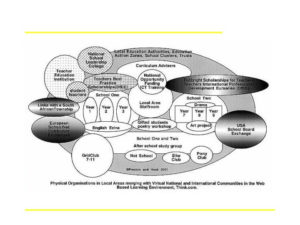 Roger Broadie has developed an interesting model for improving pupil’s learning based on surveys that he conducted:
Roger Broadie has developed an interesting model for improving pupil’s learning based on surveys that he conducted:
If you have some to publish here for others please send to: Christina Preston christina@mirandanet.ac.uk



